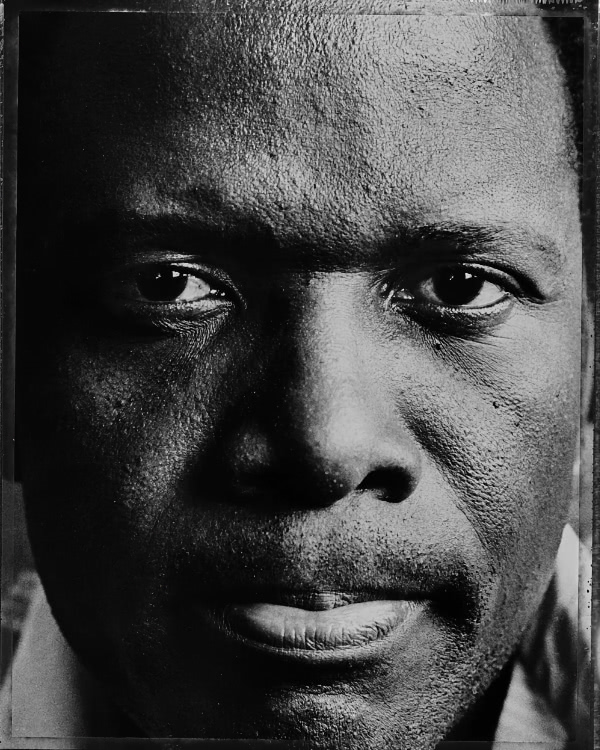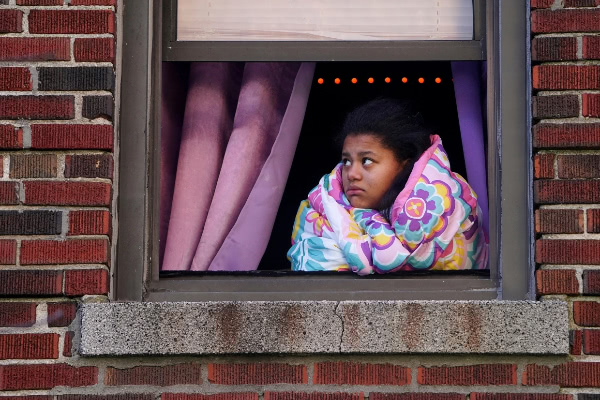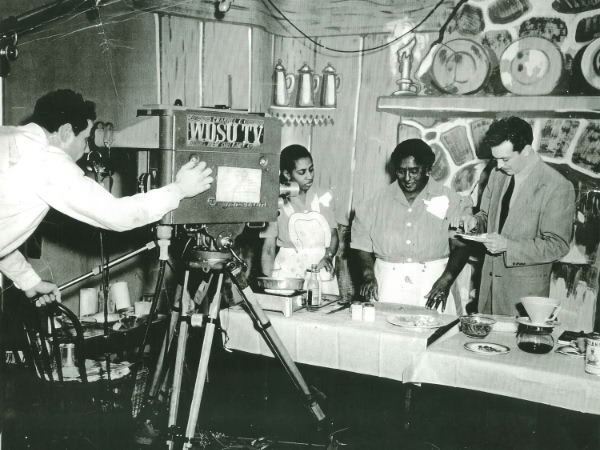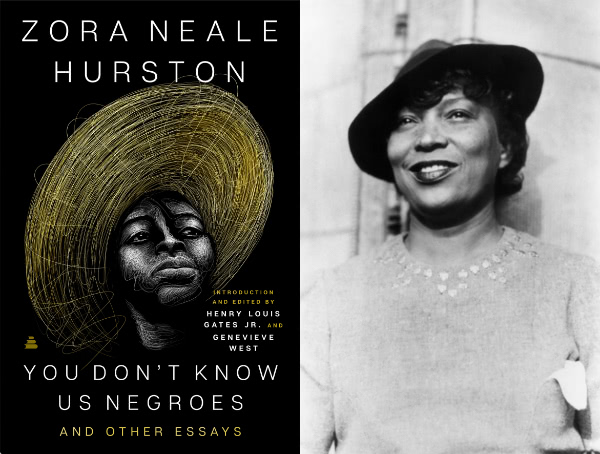Sidney Poitier Gave More Than He Was Given

The legendary actor Sidney Poitier passed away last week at age 94. Best known for roles in which he portrayed white America’s model minority – genial and nonthreatening – (as was required at the time) Poitier still managed to incorporate real Blackness in his characters.
Samantha N. Sheppard, writing for The Atlantic:
While critical of many of Poitier’s films, Baldwin exhibited an extraordinary appreciation of the actor’s eminence and talent. In his rebuke of Blackboard Jungle, for instance, Baldwin wrote that though he loathed the film, he thought that “Sidney was beautiful, vivid, and truthful in it. He somehow escaped the film’s framework, so much so that until today, his is the only performance I remember.” Baldwin understood that Poitier’s profound gift as an actor was to give more than what was on the page. […]
Poitier was fully aware of the paradoxes and limitations of his celebrity. “During the period when I was the only person here—no Bill Cosby, no Eddie Murphy, no Denzel Washington—I was carrying the hopes and aspirations of an entire people,” he said in a 1989 New York Times interview. “I had no control over content, no creative leverage except to refuse to do a film, which I often did. I had to satisfy the action fans, the romantic fans, the intellectual fans. It was a terrific burden.”
Sidney Poitier: The 2013 ‘Sunday Morning’ interview
Poitier discusses his career with CBS’s Lesley Stahl.
On “The Slap”:
STAHL: His typical character was dignified, proud, and ethical.
STAHL: Take Virgil Tibbs, a Philadelphia homicide detective who reluctantly helps a small town police chief in Mississippi, played by Rod Steiger, solve a murder, in “In the Heat of the Night.”
STAHL: But before signing on to play the role, Poitier asked the movie studio for a major script change to one scene in which his character is slapped:
POITIER: I said, “If he slaps me, I’m going to slap him back. You will put on paper that the studio agrees that the film will be shown nowhere in the world, with me standing there taking the slap from the man.”
STAHL: God, you had this written into the contract?
POITIER: That’s right, written into the contract.
STAHL: And of course it is one of those great, great moments in all of film, when you slap him back.
POITIER: Yes, I knew that I would have been insulting every black person in the world [if I hadn’t].
Protecting voting rights isn’t enough to save democracy

Fabiola Cineas, writing for Vox:
In a last-ditch effort, Biden is calling for filibuster reform to pass two voting rights bills: the Freedom to Vote Act and the John Lewis Voting Rights Advancement Act. Both bills face long odds in the Senate without changing the filibuster rules.
But as the 2022 midterm elections loom, voting rights and election law experts are sounding the alarm about risks that neither bill would fully address.
They’re calling attention to election subversion, a strategy to would [sic] negate legitimate election results by simply refusing to accept them — like, for example, appointing rogue presidential electors. (Following the 2020 election, Trump pressured Republican lawmakers in states like Michigan, Georgia, and Pennsylvania to replace the state’s electors in an attempt to reject each state’s popular vote.) This part of election law hasn’t incited as much public outrage as the many laws restricting voting passed by Republican-run state legislatures in 2021.
‘Tenants have no choice’: Racism in urban planning fuels high rate of Black fire deaths

Char Adams, writing for NBC News:
The deadly fires in the Bronx, New York and Philadelphia follow a historical pattern that sees Black people dying in accidents at alarming rates. […]
The legacy of early zoning laws across the country that promoted segregation exists today in housing instability that forces Black people into neglected rental units rife with maintenance issues that place them at higher risk for everything from fire deaths to lead poisoning. Black people are more likely than people of other races to die in accidents like fires. Though Black people make up about 13 percent of the U.S. population, they represent 25 percent of individuals killed in residential fires across the country, according to the New York State Department of Health.
Adams continues:
“Racism influences almost every way to die by accident in America, and it has for a long, long time,” said Jessie Singer, a journalist and author of “There Are No Accidents.” “I looked as far back as 1900, and Black people die by accident at a higher rate than white people, all accidents total. Accidents are supposed to be unpredictable, unpreventable events. If that were true, accidental deaths would be randomly distributed across the U.S., but it’s not.”
Meet Lena Richard, the Celebrity Chef Who Broke Barriers in the Jim Crow South

The Smithsonian:
In 1949, nearly a year after New Orleans’ WDSU-TV went live for the first time, Lena Richard, an African American Creole chef and entrepreneur, brought her freshly prepared dishes to a family-style kitchen TV set and took to the screen to film her self-titled cooking show—the first of its kind for an African American.
This was more than 10 years before Julia Child began cooking on TV.
Mama Lena was the “Martha Stewart” of New Orleans—a trained chef, acclaimed cookbook author, restaurant and catering business owner, frozen food entrepreneur, TV host and cooking school teacher. […]
And while Mama Lena proved to be a mid-century force of nature across the food industry, today, her story remains largely forgotten by both New Orleans and the nation.
‘Black Swans’ collection showcases rare recordings of early Black classical musicians
NPR:
NPR’s Audie Cornish talks with Saïs Kamalidiin, a Howard University professor, about a new collection showcasing 25 recordings of early Black classical musicians called Black Swans.
It’s amazing that these recordings, made more than 100 years ago by Black music labels, exist at all.
Kamalidiin:
We’re talking about a time period when Jim Crow in a lot of the states was in full effect - absolute segregation. So the idea that these people would take on the mantle of being a culture carrier for Western European art music was very, very unusual - that they would have the courage, No. 1, and they would choose to do that when, if you had musical talent, you’d be pushed into the jazz or blues direction and, in some cases, discouraged from doing Western European art music because, you know, who was going to be there to support your career? What would your audience be other than your travel to Europe?
From the collection, coloratura soprano Florence Cole Talbert’s “Bell Song”:
In Zora Neale Hurston’s Essays, the Nonfiction of a Nonconformist

Dwight Garner reviews a new collection of Zora Neale Hurston’s essays, You Don’t Know Us Negroes: And Other Essays, for The New York Times:
Hurston felt America gave all its citizens — even its Black ones, even in 1928 — a crack at success in life, and that things were improving every decade. “I do not belong to the sobbing school of Negrohood who hold that nature somehow has given them a lowdown dirty deal and whose feelings are all hurt about it,” she wrote in [her essay “How It Feels to Be Colored Me”]. “I have seen that the world is to the strong regardless of a little pigmentation more or less.”
She added: “Someone is always at my elbow reminding me that I am the granddaughter of slaves. It fails to register depression with me. Slavery is 60 years in the past. The operation was successful and the patient is doing well, thank you.”
Hurston felt, to the dismay of some of her peers, that too many Black people in America were refusing to take yes for an answer.
Martin Luther King Jr. on ‘The Three Evils of Society’
In this speech, delivered on August 31, 1967, at the National Conference on New Politics, Dr. King warned against ills that continue to plague American society: racism, economic exploitation, and militarianism.
For the good of America, it is necessary to refute the idea that the dominant ideology in our country, even today, is freedom and equality while racism is just an occasional departure from the norm on the part of a few bigoted extremists. Racism can well be, that corrosive evil that will bring down the curtain on western civilization.
Dr. King’s birthday is January 15.
Thanks for reading. See you next week.
